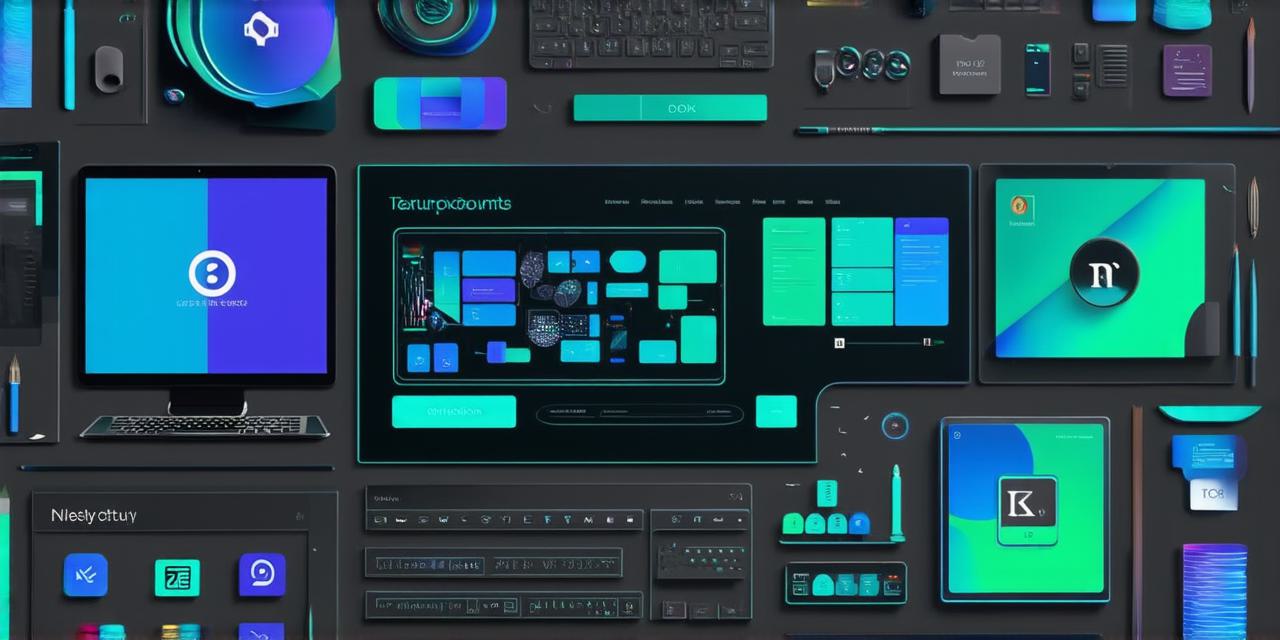1. Grasping the Fundamentals
Acquaint yourself with HTML, CSS, and JavaScript – the bedrock of web development. Mastering these languages will provide you with the foundation necessary to create functional and visually appealing websites.
Delve into user experience (UX) and user interface (UI) design principles. Understanding how users interact with websites and designing interfaces that are intuitive, accessible, and enjoyable is crucial for creating successful web designs.
Master graphic design software such as Adobe Photoshop, Illustrator, and Sketch to enhance your visual prowess. These tools will enable you to create stunning graphics, icons, and layouts that bring your web designs to life.
2. Crafting a Powerful Portfolio
Generate multiple projects that demonstrate your abilities and creativity. A strong portfolio showcases your versatility, technical skills, and design aesthetics.
Incorporate case studies detailing the hurdles encountered, solutions devised, and the eventual outcome. This provides potential employers with insights into your problem-solving abilities and your approach to web design projects.
Display versatility by working on diverse types of websites – from personal blogs to corporate sites. A varied portfolio demonstrates your adaptability and ability to tackle a wide range of web design challenges.
3. Gaining Hands-on Experience
Intern at a web design agency or collaborate with freelancers to gain practical insights. Working in a professional setting will expose you to real-world web design projects, deadlines, and client interactions.
Participate in online challenges and competitions to test your mettle. These opportunities allow you to showcase your skills, learn from others, and potentially win recognition within the industry.
Contribute to open-source projects to learn from seasoned developers and broaden your horizons. Collaborating on open-source projects can provide valuable experience and help you build a network of like-minded individuals.
4. Staying Ahead of the Curve
Keep tabs on the latest trends, tools, and technologies in web design. Regularly updating your knowledge will ensure that you remain competitive in the ever-evolving field of web design.
Attend workshops, conferences, and webinars to augment your knowledge. These events offer opportunities to learn from industry leaders, network with peers, and gain insights into emerging trends and technologies.
Follow industry leaders and influencers on social media for insights and inspiration. Staying connected with the web design community will keep you informed about the latest developments and provide a source of motivation and encouragement.
5. Networking and Collaboration
Join online communities like Dribbble, Behance, or Reddit’s r/web_design. These platforms offer opportunities to share your work, learn from others, and connect with professionals in the field.
Engage in discussions, share your work, and learn from others. Active participation in these communities can lead to valuable feedback, constructive criticism, and potential collaborations.
Collaborate with fellow designers on projects to expand your skillset and forge relationships. Working together on projects can help you develop new skills, gain exposure, and build a network of professional contacts.
6. Securing Your First Job
Customize your resume to emphasize relevant skills and experiences. Tailoring your resume to each job application demonstrates your enthusiasm for the position and your ability to adapt to specific requirements.
Network within the industry to uncover job opportunities. Building relationships with professionals in the field can lead to job leads, mentorship, and valuable advice.
Prepare for interviews by researching the company, rehearsing common questions, and showcasing your ardor for web design. A well-prepared interview demonstrates your professionalism, enthusiasm, and readiness to contribute to the company.
FAQs

1. Which software should I learn for web design?
HTML, CSS, JavaScript, Adobe Photoshop, Illustrator, Sketch, and possibly React or Angular if you’re interested in front-end development.
2. How can I enhance my UX/UI skills?
Practice designing interfaces for various devices and platforms, conduct user testing, and iterate based on feedback.
3. What are some valuable resources for learning web design?
Codecademy, freeCodeCamp, W3Schools, and Mozilla Developer Network provide comprehensive courses in web development. Additionally, online communities like Dribbble, Behance, and Reddit’s r/web_design offer a wealth of knowledge and resources for aspiring web designers.


